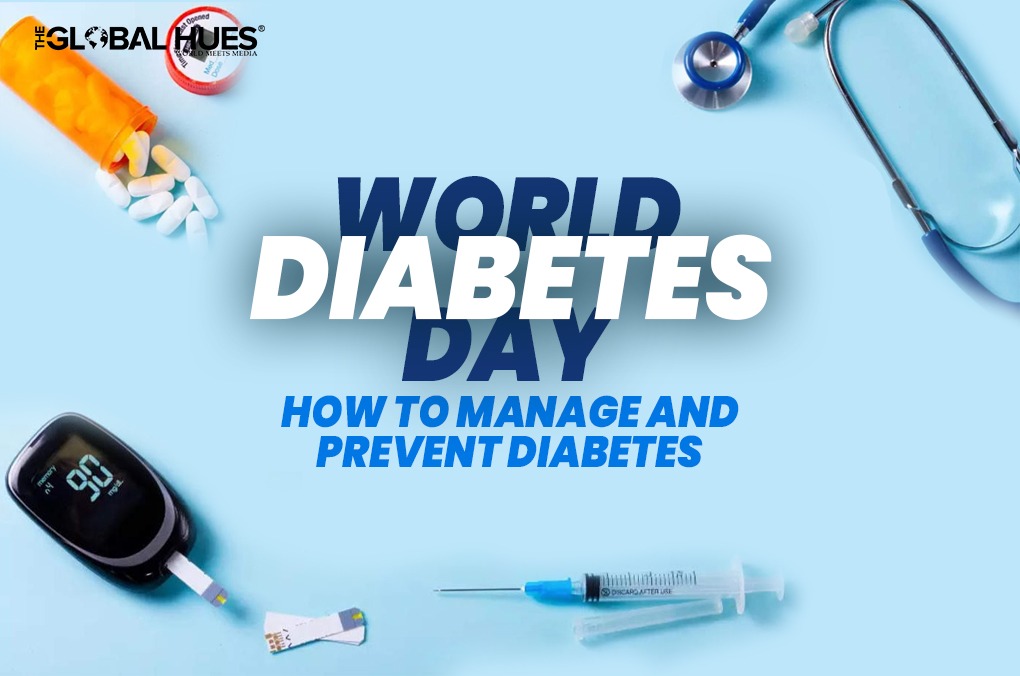November marks a significant day in the global health calendar- World Diabetes Day. On this day, the entire world unites to raise awareness about diabetes, a condition that affects an estimated 77 million adults above the age of 18. As per different sources, 25 million individuals are at risk of developing diabetes. This article explores the causes and symptoms and, more importantly, strategies to prevent diabetes, offering insights for a healthier future.
Let’s get started!
What Is Diabetes?
Diabetes is a medical condition that affects the human body’s ability to regulate blood sugar levels. Blood sugar is also known as glucose, and it is the energy source of the cells and has to be kept in check. The pancreas produces insulin which helps regulate blood sugar levels and when the pancreas doesn’t produce enough insulin, it leads to diabetes. Diabetes affects people of all age groups. There are four major types of diabetes and details of them are given below:
-
Type 1- Diabetes
It is an autoimmune disease in which your immune system attacks the insulin-producing cells in the pancreas. Nearly 10 per cent of people have type 1 diabetes. Generally, you can find it in children and young adults but it can develop at any age.
-
Prediabetes
It is the stage before type 2 diabetes, where your blood sugar levels are high but not high enough to be declared as type 2 diabetic.
-
Type 2 – Diabetes
In this type, your body doesn’t make enough insulin or your body doesn’t respond to the insulin. It is the most common type of diabetes.
-
Gestational Diabetes
It occurs in pregnancy and goes away after the pregnancy is over. However, if you have gestational diabetes, you are at a higher risk of developing Type 2 diabetes later in life.
Symptoms of Diabetes
Symptoms of diabetes include:
- Increased thirst and dry mouth
- Frequent urination
- Fatigue
- Blurred vision
- Unexplained weight loss
- Numbness or tingling in the hands and feet
- Slowing healing cuts
- Frequent skin and vaginal infection
Causes Of Diabetes
-
Insulin Resistance
Type 2 diabetes happens when the cells in your muscles, fat, and liver no longer respond to insulin. The factors contributing to insulin resistance include obesity, lack of physical activity, unhealthy diet, hormonal imbalances, genetics and medications.
-
Diabetes Due To Autoimmune Diseases
Type 1 diabetes occurs due to an autoimmune disease when your immune system attacks the insulin-producing cells in your body.
-
Hormonal Imbalance During Pregnancy
During pregnancy, the placenta releases hormones which can cause insulin resistance. Gestational diabetes occurs when the pancreas cannot produce enough insulin to overcome insulin resistance.
-
Other Causes
Physical changes or damage from an injury or an operation can impact the ability of the pancreas to create insulin and genetic mutations can also cause neonatal diabetes.
How To Manage Your Diabetes
Now that you have been diagnosed with diabetes, you have to learn how to keep your blood sugar levels in check. Below are the steps for managing diabetes:
-
Ensure That You Eat Healthy Food

Having a balanced diet is essential to keep your blood sugar levels in check. Your meal should be a perfect balance of starches, fruits, vegetables, proteins, and fats. Carbohydrates such as fruits, vegetables and whole grains are better than others and help you keep the blood sugar levels in check. You should also avoid eating sugary foods or things that have sweeteners in them.
-
Be Physically Active
If you have diabetes, you should be physically active and maintain an optimum weight. Regular activity helps your body use insulin more efficiently. If you cannot do exercises regularly, then do light exercises such as housework and gardening just to keep you moving and physically active.
-
Frequent Check-Ups And Take Your Medicines On Time
No matter how busy you are, don’t forget to take your medicines and do regular blood sugar checkups to establish a pattern and to know whether the medications are working or not. If your medication is not working, consult with your doctor to increase the dose of the medicine.
-
Manage Your Stress Levels
Being a diabetic, you should manage your stress levels as the hormones produced when you are stressed can increase your blood sugar levels. You can try some relaxation techniques like meditation and yoga to reduce your stress levels. Physical activities help relieve stress and lower blood sugar levels.
How To Prevent Diabetes
As the saying goes, “Prevention is better than cure.” Rather than eating medicines for the rest of your life, it is better to practise these steps to ensure that you don’t end up becoming a diabetic. The steps of diabetes prevention are:
-
Lose Those Extra Pounds
Being overweight is an invitation to all types of lifestyle diseases, including diabetes. If you want to reduce the chances of you becoming a diabetic, then you should lose weight. According to studies, you can reduce the chances of developing diabetes by almost 60 per cent if you reduce at least 7 per cent of your body weight. Being physically active has many benefits, such as lowering your blood sugar levels and boosting your body’s sensitivity towards insulin and that helps keep your blood sugar levels in check.
-
Include Healthy Plant Food And Fats
Plants provide vitamins, minerals, and carbohydrates in your diet. When you eat fibre-rich food, it promotes weight loss and lowers the risk of developing diabetes. It is imperative that you also include unsaturated or good fats in your diet as they help promote healthy blood cholesterol levels and good heart and vascular health.
Also Read: New Diet In The Market: Plant-Based Diet For Beginners
Summing Up
Diabetes is a medical condition in which the insulin produced by the pancreas cannot keep the blood sugar levels in check. It can happen due to obesity, genetic factors, and autoimmune diseases. Managing and preventing diabetes is crucial for a healthier and more fulfilling life.




